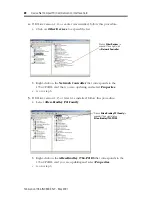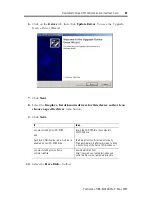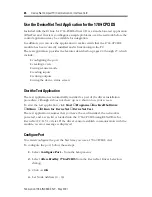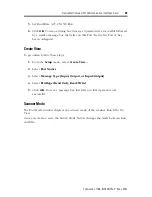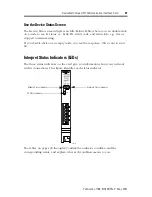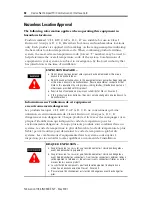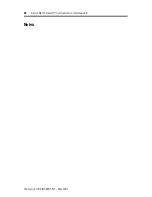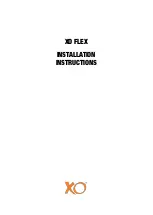
32
DeviceNet CompactPCI Communication Interface Card
Publication 1784-IN036B-EN-P - May 2001
Hazardous Location Approval
The following information applies when operating this equipment in
hazardous locations:
Products marked “CL I, DIV 2, GP A, B, C, D” are suitable for use in Class I
Division 2 Groups A, B, C, D, Hazardous Locations and nonhazardous locations
only. Each product is supplied with markings on the rating nameplate indicating
the hazardous location temperature code. When combining products within a
system, the most adverse temperature code (lowest “T” number) may be used to
help determine the overall temperature code of the system. Combinations of
equipment in your system are subject to investigation by the local authority that
has jurisdiction at the time of installation.
EXPLOSION HAZARD –
•
Do not disconnect equipment unless power has been removed or the area is
known to be nonhazardous.
•
Do not disconnect connections to this equipment unless power has been removed
or the area is known to be nonhazardous. Secure any external connections that
mate to this equipment by using screws, sliding latches, threaded connectors, or
other means provided with this product.
•
Substitution of components may impair suitability for Class I, Division 2.
•
If this product contains batteries, they must only be changed in an area known to
be nonhazardous.
Informations sur l’utilisation de cet équipement
en environnements dangereux:
Les produits marqués «CL I, DIV 2, GP A, B, C, D» ne conviennent qu’à une
utilisation en environnements de Classe I Division 2 Groupes A, B, C, D
dangereux et non dangereux. Chaque produit est livré avec des marquages sur sa
plaque d’identification qui indiquent le code de température pour les
environnements dangereux. Lorsque plusieurs produits sont combinés dans un
système, le code de température le plus défavorable (code de température le plus
faible) peut être utilisé pour déterminer le code de température global du
système. Les combinaisons d’équipements dans le système sont sujettes à
inspection par les autorités locales qualifiées au moment de l’installation.
RISQUE D’EXPLOSION –
•
Couper le courant ou s’assurer que l’environnement est classé non dangereux
avant de débrancher l'équipement.
•
Couper le courant ou s'assurer que l’environnement est classé non dangereux
avant de débrancher les connecteurs. Fixer tous les connecteurs externes reliés à
cet équipement à l'aide de vis, loquets coulissants, connecteurs filetés ou autres
moyens fournis avec ce produit.
•
La substitution de composants peut rendre cet équipement inadapté à une
utilisation en environnement de Classe 1, Division 2.
•
S’assurer que l’environnement est classé non dangereux avant de changer les
piles.
Содержание DeviceNet CompactPCI 1784-CPCIDS
Страница 33: ...DeviceNet CompactPCI Communication Interface Card 33 Publication 1784 IN036B EN P May 2001 Notes ...
Страница 34: ...34 DeviceNet CompactPCI Communication Interface Card Publication 1784 IN036B EN P May 2001 Notes ...
Страница 35: ...DeviceNet CompactPCI Communication Interface Card 35 Publication 1784 IN036B EN P May 2001 Notes ...



